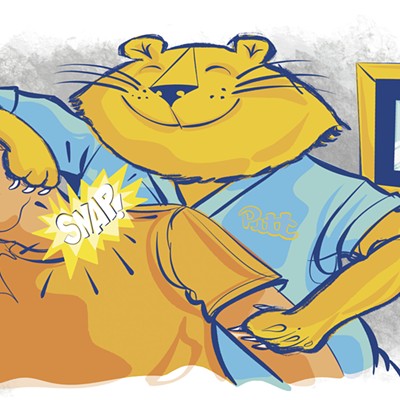Now that the state's controversial "voter-ID" law has been put in limbo by a state judge, things should go smoothly on Election Day, right?
Don't be too sure.
"With Governor Corbett not upholding the voter-ID law, we need poll watchers," wrote the Pittsburgh Tea Party movement in an Oct. 5 email blast. When it comes to voting irregularities, the group maintains, "Western Pennsylvania and the Philadelphia area are problem areas for our country."
"Be warned that some of the areas that need poll watchers are not in the nicest part of town," the email cautions.
The Tea Party made a similar appeal in 2011, and poll watchers are nothing new: State law allows them to oversee the voting process, inspecting voter rolls and challenging voter qualifications. But after the voter-ID controversy, voting-rights activists are taking special notice of such efforts. Also drawing scrutiny is True the Vote, a Texas-based Tea Party-affiliated group seeking to recruit 1 million poll watchers in 35 states, including Pennsylvania.
One True the Vote organizer, Bill Ouren, famously announced that for voters, having monitors on-hand would be "[l]ike driving and seeing the police following you." And for some activists, talk of monitoring polls in "not the nicest part of town" suggests that conservatives will target black precincts.
"We've been very concerned that many African-American voters could be dissuaded or turned away from the polls," says Khari Mosley of the A. Philip Randolph Institute, which acts as a liaison between unions and African Americans. The group plans on having more than 200 observers in Western Pennsylvania precincts where blacks make up more than 35 percent of voters.
"If the True the Vote people do come out, there could be an intimidation factor. We want to let people know they have rights," Mosley says.
Activist group One Pittsburgh will similarly focus on black neighborhoods like Homewood and the Hill District — "places that traditionally vote Democratic, and where there has been a history of long lines, or a lot of challenges," says Alice Thompson, a One Pittsburgh community organizer.
Thompson is seeking volunteers to work as poll watchers and poll workers, county-trained workers who do polling-place field work. One Pittsburgh will supplement the county's training with its own course — "to provide a history of voter-suppression tactics," among other things — and provide a list of recruits to the county, in case some precincts are short-handed. Otherwise, Thompson says, the recruits may serve as "comfort captains," assisting those in line. (Volunteers can reach Thompson at [email protected] or 412-463-8275.)
"There's nothing wrong with saying, ‘I want everyone voting to be who they say they are,'" Thompson adds. "The problem comes when that rhetoric leads to wrongfully disenfranchising people."
"Voter ID is the big unknown," agrees Sara Rose, an attorney with the ACLU. "One thing we're focused on is making sure that people are not wrongly required to show ID. We're expecting that if someone says, ‘I left my ID at home,' a poll worker may say, ‘You have to go home and get it.'"
Lawyers will staff an Election Day hotline (1-866-OUR-VOTE), and provide legal services in case of efforts to intimidate or disenfranchise voters. Rose says such efforts are especially important in Pennsylvania, where voter-challenge laws were "among the worst examined," according to a recent report by the left-leaning research group Demos. Bullies at the Ballot Box complains that a Pennsylvania voter's qualifications can be challenged for "flimsy reasons," while putting the burden of proof on the accused. The law, says Demos, "does not adequately protect the rights of those challenged inappropriately."
Activists doubt many voters will actually be sent home as a result of challenges. The larger concern, they say, is that spurious challenges may cause long lines, turning away voters who can't wait all day.
But even if Election Day goes off flawlessly, Mosley says, the battle over ballot access has damaged the election process.
"If you look at all of the work done over the past several months on voter ID, that could have been spent educating people on where candidates stand," he says. "That's an opportunity we'll never get back."














